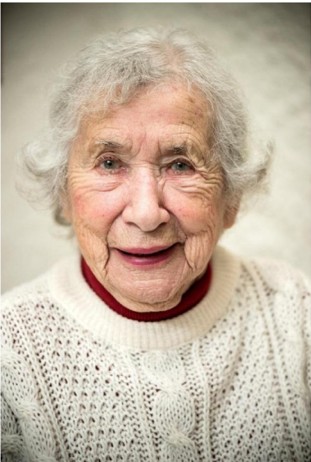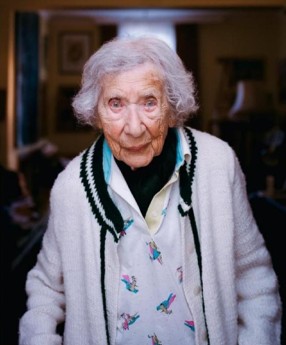We mourn the loss of Selma van de Perre
26.10.2025

Selma van de Perre - Velleman (1922 – 2025) A life that testifies to courage, resistance and indestructible humanity Selma van de Perre was born Selma Velleman on June 7, 1922, in Amsterdam, the daughter of Barend Velleman and Femmetje Spier, into a warm and progressive Jewish family. Her childhood was imbued with optimism and curiosity; she grew up surrounded by books, music, and the belief that the world could be understood and improved. But that faith was cruelly shattered in the early 1940s. When the occupation began, Selma saw the society in which she was raised slowly shift. What had once seemed unthinkable became a daily occurrence: bans, humiliations and fear came. In 1942, when the deportations began, Selma knew she couldn't wait. She joined the resistance and adopted a new name— First Wil Buter, later Marga van der Kuit. Under this identity, she traveled across the country, pretending to be an ordinary young woman, but in reality, working as a courier for a resistance group. She delivered illegal documents, distributed false identity cards, and smuggled messages to people in hiding. Every train journey could be her last. She had to be constantly alert, on the streets, in stations, at checkpoints. One wrong look, one wrong name, and it would all be over. What drove her wasn't reckless heroism, but a deep sense of responsibility. "I did what I could," she would later say. "Not because I was particularly brave, but because it felt impossible to do nothing." In a time when fear was the norm, Selma chose to act; a quiet, yet radical, act of humanity. In June 1944, when the end of the war seemed in sight, she was betrayed. She was arrested, interrogated, and transferred to Camp Vught, where she was held for weeks awaiting transport. Finally, she was deported to Ravensbrück, the large women's concentration camp in Germany. There, her name was again taken away and replaced by a number. The days consisted of forced labor, hunger, cold, and constant fear of abuse or execution. Yet Selma, along with other prisoners, tried to hold on to their humanity. She helped sick fellow prisoners, shared what little bread she had, and even occasionally ventured to pass on messages; small pieces of hope that passed from hand to hand. In the chaos of the camp, a silent solidarity emerged: women of all nationalities whispering each other's names, supporting each other, affirming each other's existence in a world that wanted to erase them. When Ravensbrück was liberated in April 1945, Selma was weakened but alive and was taken out of the camp as part of the "white buses" to a safe country. From her family It turned out that no one survived the war; her parents and her younger sister Clara had been murdered in the concentration camps. She carried that loss with her throughout her life, without bitterness, but with an unspoken melancholy that colored her stories. After the war, she chose a new beginning. She left for England, where she later met her husband, Hugo van de Perre, and had a son. She worked as a journalist and translator, including for the BBC, and maintained her ties to the Netherlands through her journalistic work for AVRO and Televizier. She became a British citizen, but her heart remained in Amsterdam, the city of her youth. Only in her later years did she decide to write down her war story in full. In her book, "My Name Is Selma," she captured what she had silently carried with her for decades. Not to put herself in the spotlight, but to bear witness for her family, for the women of Ravensbrück, and for all those who could no longer speak. Her clear, down-to-earth style made a deep impression; her words carried the power of someone who had seen evil and refused to be defined by it. Until a very old age, Selma spoke with pupils (including through school trips), students (including through the former teacher training college trips), and journalists. She did so calmly, without pathos, but with a moral clarity that was touching. "Freedom," she often said, "isn't something you have, it's something you guard. Every single day." On October 20, 2025, Selma van de Perre - Velleman passed away in London at the age of 103. She was one of the last surviving female resistance fighters from the Netherlands, a witness to a time slowly shifting from memory to history. Her life symbolized the resilience of the spirit, the choice to remain good in a time of evil. Selma left behind more than just a story. She left behind a moral compass; a reminder of what it means to remain human, especially when the world seems to be losing its humanity. Rest in peace, Selma. Your name remains, and your story will be told forever.
